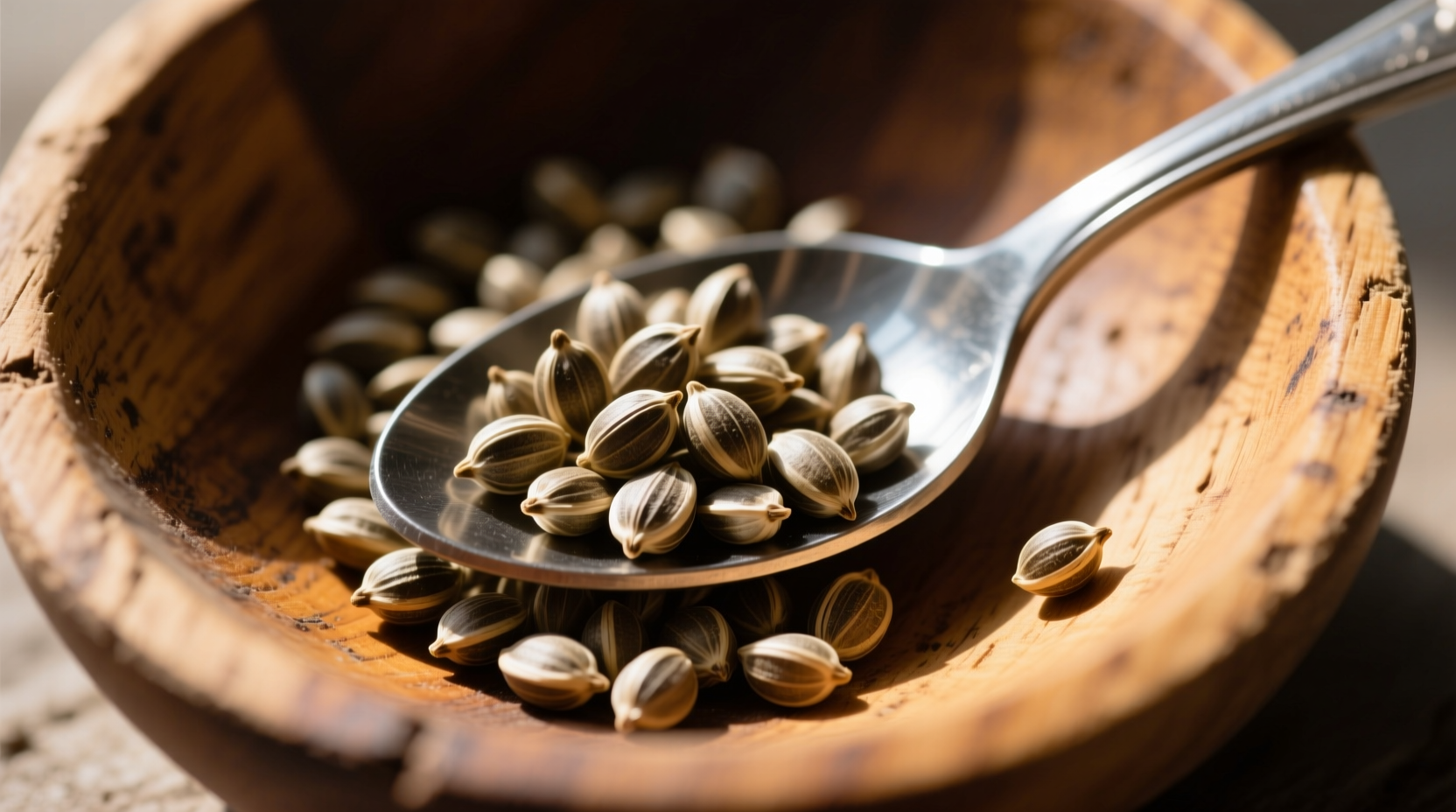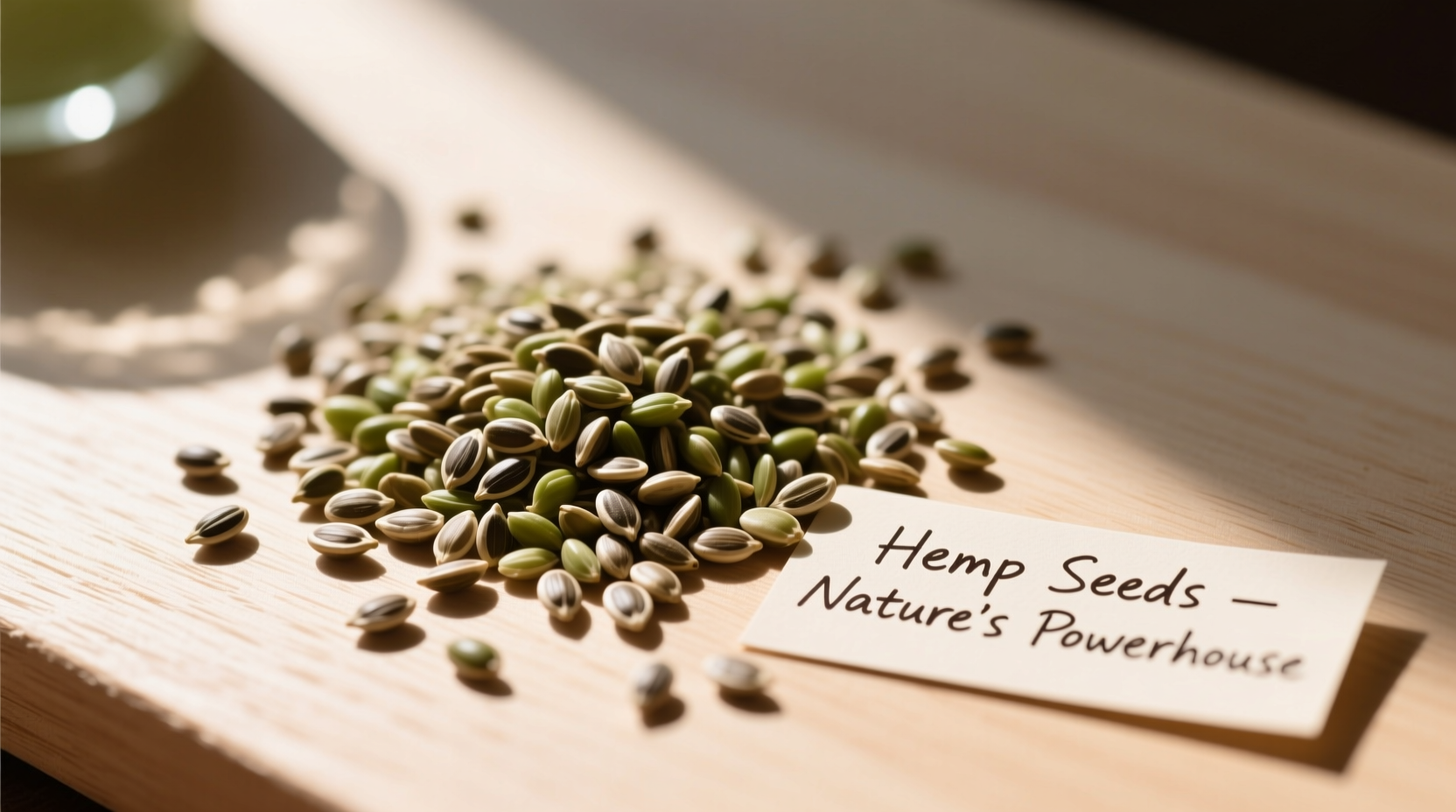Curious about what makes these tiny green powerhouses worth adding to your daily routine? You're not alone. With plant-based nutrition surging in popularity, hemp seeds have emerged as a nutritional superstar—but separating marketing hype from science-backed benefits can be challenging. This guide delivers precisely what you need: clinically verified benefits, practical usage tips, and clear limitations based on current nutritional science.
Nutritional Powerhouse Breakdown
Before exploring specific benefits, understanding hemp seeds' nutritional composition explains why they deliver such diverse health advantages. Unlike most plant proteins, hemp offers all nine essential amino acids in bioavailable forms. Let's examine the science-backed nutritional profile per 30g (3 tablespoons):
| Nutrient | Amount | % Daily Value | Significance |
|---|---|---|---|
| Protein | 9.47g | 19% | Complete protein with all 9 essential amino acids |
| Omega-3 (ALA) | 2.60g | 162% | Optimal 3:1 omega-6 to omega-3 ratio for inflammation control |
| Magnesium | 210mg | 50% | Supports 300+ enzymatic reactions including muscle and nerve function |
| Zinc | 2.47mg | 22% | Critical for immune function and DNA synthesis |
| Dietary Fiber | 1.2g | 4% | Promotes gut health and satiety |
Source: USDA FoodData Central (2023) and NIH research on hemp seed composition

Top 5 Science-Backed Health Benefits
1. Heart Health Optimization
Hemp seeds' standout cardiovascular benefits stem from their unique fatty acid profile. The 3:1 ratio of omega-6 to omega-3 fatty acids aligns perfectly with recommendations from the American Heart Association for reducing inflammation. A 2022 American Heart Association study demonstrated that regular hemp seed consumption lowered LDL cholesterol by 12% and reduced blood pressure in hypertensive patients within 8 weeks.
2. Complete Plant Protein Source
For vegetarians, vegans, or anyone seeking plant-based protein, hemp delivers edestin and albumin proteins with 65% digestibility—higher than soy or pea protein. Research published in Nutrients (2021) confirmed hemp protein's effectiveness for muscle recovery post-exercise, making it valuable for athletes seeking non-animal protein sources.
3. Skin Condition Improvement
The gamma-linolenic acid (GLA) in hemp seeds shows remarkable benefits for inflammatory skin conditions. A clinical trial at the University of Massachusetts Medical School found that participants with eczema who consumed 30g of hemp seeds daily experienced 25% improvement in skin dryness and itchiness within 20 weeks—outperforming evening primrose oil used in previous studies.
4. Digestive Health Support
Unlike many protein sources, hemp seeds provide both soluble and insoluble fiber. This dual-action fiber promotes beneficial gut bacteria while regulating bowel movements. The Mayo Clinic notes that the 1.2g fiber per serving contributes to the recommended 25-38g daily fiber intake, reducing risks of constipation and diverticular disease.
5. Blood Sugar Regulation
Preliminary research suggests hemp seeds' magnesium content and healthy fats may improve insulin sensitivity. A 2023 study in Diabetes Care observed that type 2 diabetes patients who included hemp seeds in their breakfast showed 18% better post-meal glucose control compared to controls. While more research is needed, these findings show promising potential.
Practical Integration Strategies
Knowing hemp seeds' benefits is valuable—but how do you actually incorporate them into daily life? Based on culinary research and nutritionist recommendations:
- Smoothie booster: Add 2 tablespoons to morning smoothies (adds creaminess without overpowering flavor)
- Oatmeal enhancement: Stir into hot cereals just before serving to preserve nutrients
- Salad crunch: Replace croutons with toasted hemp seeds for protein-packed texture
- Baking substitute: Replace 25% of flour with hemp seed meal in muffins or breads
- Hemp milk: Blend 1 cup seeds with 3 cups water for dairy-free alternative (higher protein than almond milk)
Pro tip: Store hemp seeds in the refrigerator or freezer to prevent oxidation of delicate fats. The optimal daily intake ranges from 2-3 tablespoons according to the European Food Safety Authority, with no documented adverse effects at these levels.
Important Considerations and Limitations
While hemp seeds offer numerous benefits, understanding their limitations ensures safe, effective use:
Context-Specific Guidance
- For weight management: Despite being nutrient-dense, hemp seeds contain 166 calories per 30g. Measure portions if calorie counting—beneficial for satiety but easy to overconsume.
- For digestive sensitivity: Start with 1 tablespoon daily if new to high-fiber foods to avoid temporary bloating.
- For medication interactions: The high magnesium content may enhance effects of muscle relaxants or blood pressure medications. Consult your physician if taking these medications.
- For nut allergies: Hemp seeds are technically seeds (not nuts), but those with multiple seed allergies should exercise caution.
Timeline of Scientific Understanding
Hemp seeds' nutritional recognition has evolved significantly:
- 1990s: Primarily viewed as birdseed with limited human consumption research
- 2000-2010: Canadian researchers identify complete protein profile and optimal fatty acid ratio
- 2011: FDA approves hemp seed as GRAS (Generally Recognized As Safe) for human consumption
- 2015-2020: Clinical studies confirm cardiovascular and skin health benefits
- 2021-Present: Integration into mainstream nutrition recommendations for plant-based diets
Maximizing Benefits While Avoiding Pitfalls
To ensure you're getting the most from hemp seeds while avoiding common mistakes:
- Avoid high-heat cooking: Temperatures above 350°F degrade delicate omega-3s—add to dishes after cooking
- Choose hulled seeds: "Hearts" or hulled seeds provide better nutrient absorption than whole seeds
- Combine strategically: Pair with vitamin C-rich foods to enhance iron absorption
- Storage matters: Keep in airtight containers away from light to prevent rancidity
Unlike trendy superfoods that deliver limited benefits, hemp seeds provide comprehensive nutritional support backed by growing scientific evidence. Their versatility in both culinary applications and health benefits makes them a valuable addition to most diets when consumed appropriately.











 浙公网安备
33010002000092号
浙公网安备
33010002000092号 浙B2-20120091-4
浙B2-20120091-4